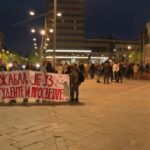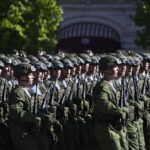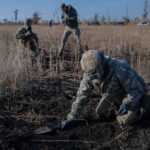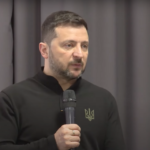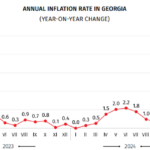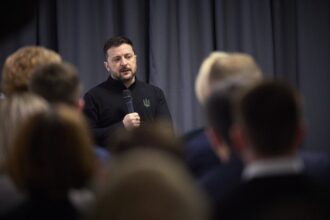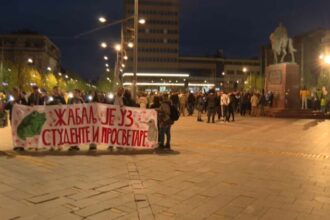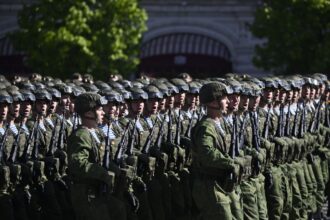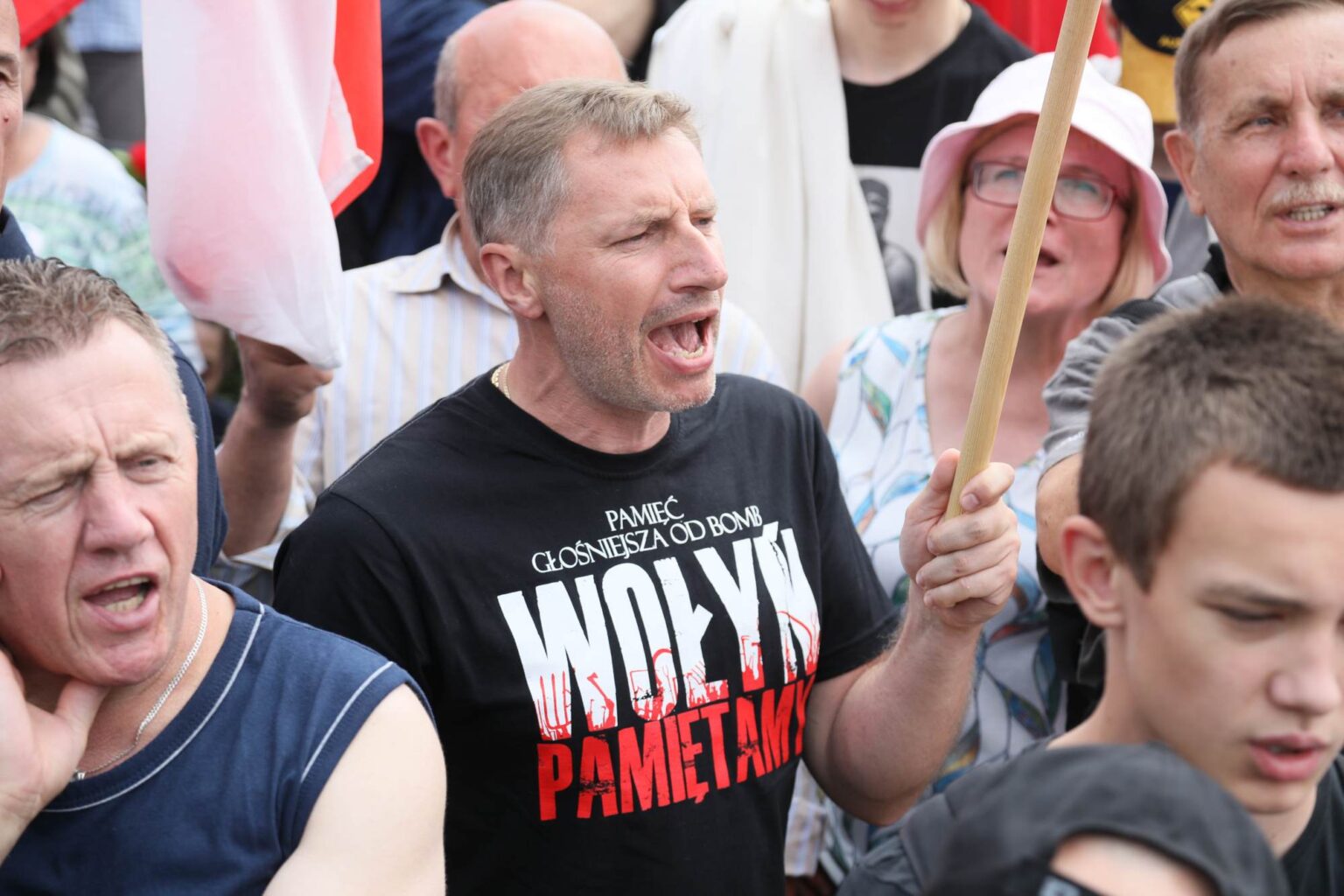Ukraine’s cordial relations with Poland have hit a rough patch as ghosts of the turbulent mid-20th Century return with a vengeance.
The Volyn tragedy – also known as a massacre in Poland – is the mass killings of Polish civilians by the Ukrainian Insurgent Army during World War II. It has been a long-standing open wound for Polish and Ukrainian relations. The historical grievances are now a roadblock for Ukraine’s strategic EU Membership.
While Poland frames the tragedy in terms of a unilateral Ukrainian “genocide”, Ukraine insists on the mutual animosity, territorial disputes and violence that preceded the killings.
Stepan Bandera, the leader of UPA, is a particular source of disagreement. His veneration by Ukrainians as a symbol for the struggle for independence during World War II has been condemned by Polish officials who hold him responsible for the Volyn disaster.
The tensions reached a peak when Poland’s prime minister Donald Tusk said that Ukraine’s path towards EU membership depends on resolving historical disputes with Poland. This includes Volyn. Defense Minister Wladyslaw Ksiniak Kamysz also suggested that Poland could block Ukraine’s EU entry if the “Volyn question” is not resolved.
This rhetoric marked a sharp U turn compared to Warsaw‘s previous stance which had pushed Ukraine’s fast-tracked entry into the EU and NATO.
This raises questions as to the fate of an important security partnership that is crucial in resisting Russia’s ongoing conflict. Poland was Ukraine’s main partner early in Russia’s full scale invasion. It pressed hard for Western military assistance and became a vital lifeline of assistance pouring into Ukraine. The two nations formed an alliance bound by a shared threat. This alliance was crucial in bolstering Ukraine’s resistance, and preventing Russia from gaining more foothold in Europe.
What is the truth behind Volyn? Will Poland block Ukraine’s EU entry over historical grievances from Poland? Euromaidan Press investigates.
Reopening Pandora’s Box
The discord between the two countries peaked on 30 August 2024 when the Ukrainian foreign minister Dmytro Kuleba met with his Polish counterpart Radoslaw Skorski at a panel during the Campus Poland of the Future conference.
Kuleba responded to the question about when Ukraine would allow the exhumation of bodies of Polish victims from the 1943 Volyn tragedy by saying that Ukraine has no unconditional requirements, but insists on honoring Ukrainians as well.
In a moment characterized by “whataboutism,” the Polish official deflected by mentioning Operation Vistula – a post World War II forced deportation by Polish authorities of Ukrainians – and implying that both countries should avoid the repercussions that come with digging into the past.
The comment on the Achilles’ heel of the alliance sparked a flood of debates in Polish political and media circles. Radoslaw Sikorski repeated his request for the exhumation to resume of the Polish victims from the Volyn massacre several days after the incident.
Donald Tusk, the Polish Prime Minister, also said that Ukraine’s EU membership depends on Poland’s approval. Poland demands Ukraine “align itself with certain cultural and politic standards”, hinting at Volyn’s tragedy.
In an interview with Polsat News Andrzej Duda, the Polish president, rebuffed that position, claiming a breakthrough to resolve deep-seated historical problems between Poland and Ukraine could not come from “unceremonious extortion,” which would lead to “nothing positive” for Poland.
The shadows of Volyn tragedy
The controversy dates back to World War II, when the conflicting national aspirations between Ukrainians and Poles led to massive civilian deaths on both sides. The hostilities reached their peak in 1943. Their key event was known as the “Volyn Massacre” in Poland and the “Volyn Tragedy” in Ukraine, referring to the Volyn area located in the northwest corner of Ukraine.
In other borderlands between Poland and Ukraine, there were also mass slaughters and destructions of both Ukrainian and Polish villages. Estimates suggest that 45,000 Poles, and 20,000 Ukrainians died. The death toll was aggravated further by the mass deportations, and ethnic cleansing carried out by the Polish communist post-war government.
Interpretation of these events is a major stumbling-block in Polish-Ukrainian relationships. Poland frames the tragedy as an unilateral Ukrainian “genocide”, of Poles. Ukraine responds by pointing out the reciprocal nature, claiming that the violence was caused due to mutual animosity, territorial disputes, and escalating tensions during WWII.
From historical debate to diplomatic fallout
The debate went beyond academic discussions when the Polish parliament adopted a resolution in 2016 calling the Volyn tragedy “genocide”. The Polish lawmakers officially blamed the massacre on the Ukrainian Insurgent Army, the nation’s biggest independence movement during WWII. They stated that “100,000. citizens of the Second Polish Republic between 1939 and 45 were murdered.”
This move has sparked criticism from Ukrainian historians, who insist that the crimes attributed contradict UPA policy. However, the involvement of specific fighters or units is yet to be discussed.
They rejected the Polish resolution’s narrative, that UPA’s Volyn tragedy actions were motivated by the UPA’s brief collaboration with Nazi forces in World War II. They noted that UPA leader Stepan bandera ended up openly resisting Nazi occupation and being imprisoned by Nazis by 1941.
The Ukrainian side also points out that the high number of Polish casualties in the resolution is not confirmed and that the resolution fails to acknowledge the massive killings of Ukrainians in Poland by Polish fighters. This includes those of the Home Army, which was the main resistance movement under Nazi occupation.
Read More @ euromaidanpress.com

